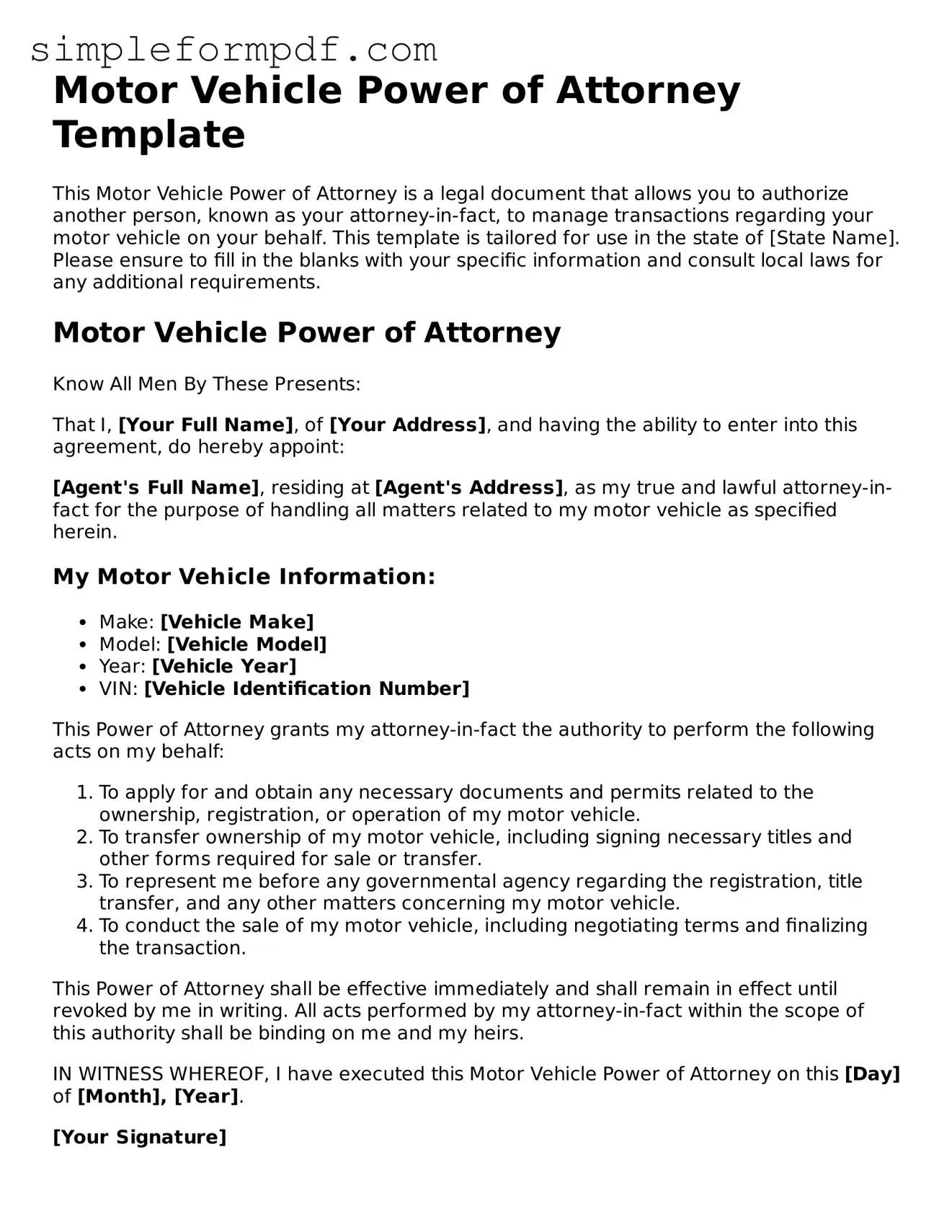Fillable Motor Vehicle Power of Attorney Template
The Motor Vehicle Power of Attorney form is a legal document that allows one person to authorize another to act on their behalf regarding motor vehicle transactions. This can include tasks such as registering a vehicle, transferring ownership, or obtaining title documents. Understanding this form is crucial for anyone needing assistance with vehicle-related matters.
To get started, fill out the form by clicking the button below.
Launch Editor

Fillable Motor Vehicle Power of Attorney Template
Launch Editor
Need instant form completion?
Finish Motor Vehicle Power of Attorney online in just a few minutes.
Launch Editor
or
Download PDF
